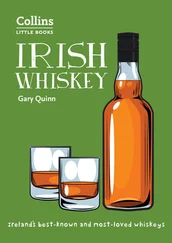Tessa’s room was more of a stateroom than a cabin. It was twice the size of his. But it looked like she spent a lot of time in it. There were four laptops and a dozen other assorted technological devices blinking away in corners, paperwork in legal-type binders piled on two desks, empty cups and glasses marooned on ledges, and three huge duffel bags stacked in an open wardrobe.
But the salient feature of Tessa’s room was its balcony, or whatever it was called on a ship. That’s where they sat and smoked, listening to the slap and slosh of ocean ten decks below. Tessa smoked a Lucky Strike. Mark suffered through one of the Israeli woman’s fey cigarettes.
“I guess it was pretty dumb of me to sneak around,” said Mark, his mind having been made still and clear by the nicotine. “I mean, we’re guests here, right?”
“Well, yes and no,” she said. Some light fell on them from her stateroom, but the dark sea and moonless sky beat it back; he couldn’t see her face well enough to read any information that it might have held.
“Let’s talk about the no part, shall we?” he said.
That amused her. And then: “You really don’t know what’s going on, do you?”
“Well, I guess not about this, no. But maybe there’s stuff I know that you don’t know.”
“What I don’t know is how you even got this far,” she said. But then she must have thought that too harsh, because she leaned a bit toward him and said, “I mean, you must have skills; Straw is mad about you. You want a less silly cigarette?” And she offered him one of her Luckies.
He took the cigarette. “He’s a close reader. He told me that my book inspired him to begin this big project of his, the thing he’s calling New Alexandria.”
“But you don’t know what he meant by that?”
“James and I don’t really discuss operational specifics, just goals. Abstractly, more or less.”
“Oh, you’re the kind of therapist I want,” said Tessa.
She had a point. In one of their recent sessions, when Straw had implied that New Alexandria involved data collection on an unprecedented scale, Mark had only agreed that it was a good idea to collect knowledge. When Straw veered off on a rant about how after the correction, there wouldn’t be so many damn people braying about their information rights, Mark didn’t say, Wait. What correction are you talking about? He just tried to steer Straw back to the stuff about how we all benefit by making our interactions more transparent.
“I guess tomorrow you’ll get more of the operational specifics,” said Tessa. “Though as our new SIC, you’ll want to go light on that part.”
“Ess-Eye what now?”
“Storyteller-in-chief.”
“Yeah, that. Listen, I haven’t actually said I’ll take the job yet. James and I are going to talk about it tomorrow.”
“Your thing with him looks pretty complicated.”
Mark thought that was very perceptive of her. Complicated it certainly was, at least for him: he had to act like a dutiful son but one who gave counsel to the father; manage Straw’s egomania; say enough to display his mind’s agility but not too much, lest he betray the sizable gaps in his knowledge.
“Have you always gone in for older men?”
Mark snapped to. “Pardon?”
“I just mean, you know, the age difference between you. I was once in a relationship like that. I found it challenging.”
“I’m James Straw’s counselor,” said Mark slowly. “I counsel him. That’s all.”
She leaned forward and into a bit of light. She looked sincerely confused. “Really?”
Mark nodded.
“Oh,” said Tessa. “Huh. You’re not his…partner?”
Shit . Who else thought this? “I’m straight. You know that, right?”
She made a tiny big-deal sign with her eyes. “Well, I guess I do now. Do you know that I’m queer?”
“I couldn’t decide,” he said. “What, exactly, made you think I was gay?”
“Pope said Straw was bringing his boy into the operation. And since you’re not his son, I thought he meant the other kind of boy.”
This was terrible. People thought he was Straw’s boy. There came to his mind a fleeting image of what it would be like to service Straw, to be pressed against his skinny, limp flanks, hold his mottled hand.
“It’s strange, though, you know?” said Tessa. “Because I read your book, and I must have missed the part where you advocate for the construction of a diffuse remote network of offshore data vaults.”
Diffuse remote network of offshore data vaults? “Well, I believe I did go on about preparedness,” said Mark. “You know, as a generality. I suppose remote whatever offshore data vaults kind of fit in with that.”
She definitely thought he was funny. He tried to get more out of her about the scope and nature of what the ship was engaged in, but she would say no more about it. A bit desperately, he tried the direct approach—“But there’s nothing illegal about New Alexandria, is there?”—and the way she immediately clamped down told him all he needed to know.
And then she said, “Listen, I actually have loads more work to do tonight. So I guess I’ll see you tomorrow. Hopefully, after you’ve taken the tour.” It seemed likely that when this woman pleaded work, she actually meant she had to work. Various of her devices had bloop ed repeatedly with incoming messages, and the binders on her desk were too big to be for show. She saw him to the door of her stateroom and used her long-fingered hands to scribble for him in the air a route back to his cabin.
There was a klaxon splitting the air. Mark leaped from his bunk, forgetting how elevated it was, and one ankle buckled beneath him and he yelped in pain and ran to the door of his cabin in his underwear. Opening it, he found Singh standing outside, as still as a queen’s guard.
“Good morning, Mr. Deveraux,” Singh said rather loudly, because the klaxon was as deafening in the corridor as it was in the cabin.
“Where’s the emergency?” yelled Mark, but even before he’d finished the question, the klaxon quit klaxoning, and his yelling was suddenly strange.
“There is no emergency, Mr. Deveraux,” said Singh. “That was the morning bell. It is six thirty. Breakfast will be in half an hour.”
Breakfast was smoothies and sardines on toast, served in a sort of officers’ mess, not the wood-paneled dining room of the night before. Straw was there and was very excited. Pope was there too, slathering sardines on his toast. Hovering nearby him was an attractive female assistant twenty years his junior, but it wasn’t Tessa, who Mark figured was probably above hovering.
“We’ll join you again just as soon as you’ve seen the ship,” Straw said to Mark. “I thought that you and I could take the afternoon to relax.”
The first half hour of the tour was docented by a bearded and barrel-chested Greek who clearly didn’t want to talk about anything other than life rafts and bow thrusters and nautical miles and who kept correcting Mark whenever he failed to use a feminine pronoun for Sine Wave 2. Anyway, Mark was too boggled by the size of the ship to do any good ferreting. From a cornice high on the pilothouse, looking out over the length and breadth of the vessel, the thin line of the horizon strung across its distant bow, Mark felt that Sine Wave 2 was the center of the universe, that it could bend things into itself. Or into herself.
“So what does it carry?” asked Mark in some exasperation, indicating the quarter mile of mysterious volume that extended from the ship’s superstructure like a titanic boner. The Greek simply shrugged his shoulders.
“You don’t know what this ship carries?” Mark asked the Greek’s back. He was docenting the tour at a fair clip now.
Читать дальше












